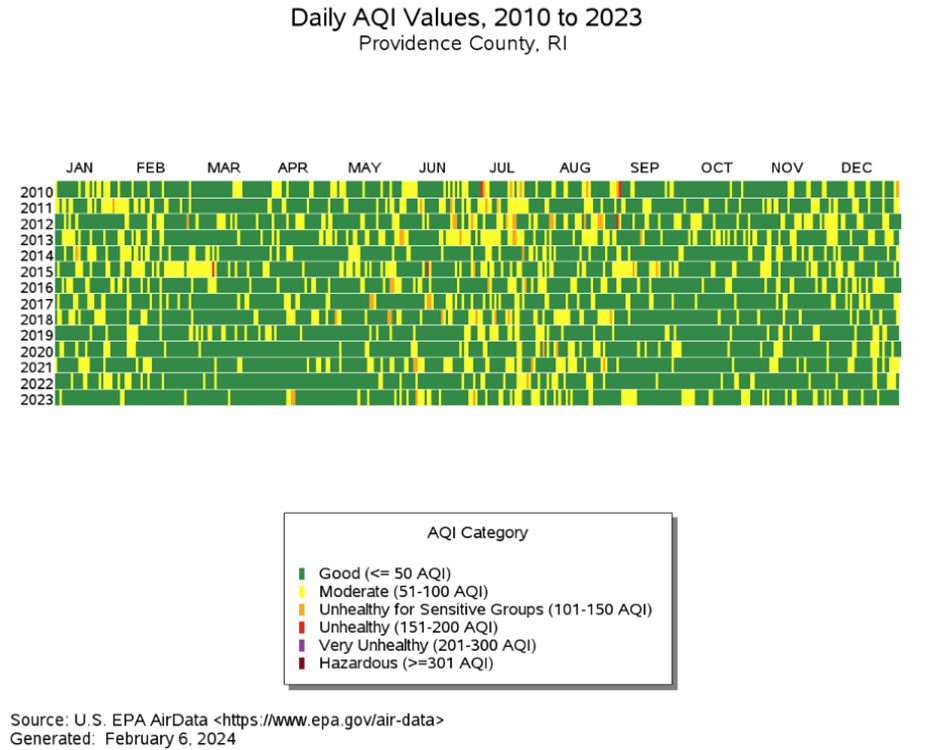Climate change poses significant challenges to air quality throughout the US, as warming temperatures and extreme heat exacerbate ground-level ozone and pollution levels. Elevated air pollution during hot summers can lead to respiratory and heart conditions, particularly affecting vulnerable populations such as children, the elderly, and those with chronic diseases. Asthma rates can rise, impacting school attendance and learning for children.
Air quality is not a major challenge in Providence as per EPA data, which shows very few days with AQI over 100 in the past years. The city has maintained a better air quality, with only 2 days of AQI over 100 anticipated in 30 years. The state, however, remains conscious regarding ozone and particulate matter in certain areas of Providence. The Port of Providence and traffic-heavy areas such as I-95 pose risks of pollution, especially in low-income neighborhoods where asthma rates are elevated. Without action to curb industrialization and greenhouse gas emissions, air pollution is likely to worsen over time.
The state has implemented initiatives to monitor and improve air quality for public health. Brown University remains committed to actively promoting sustainability actions, including our EV program, to reduce emissions and ensure a healthy air quality environment on campus.
